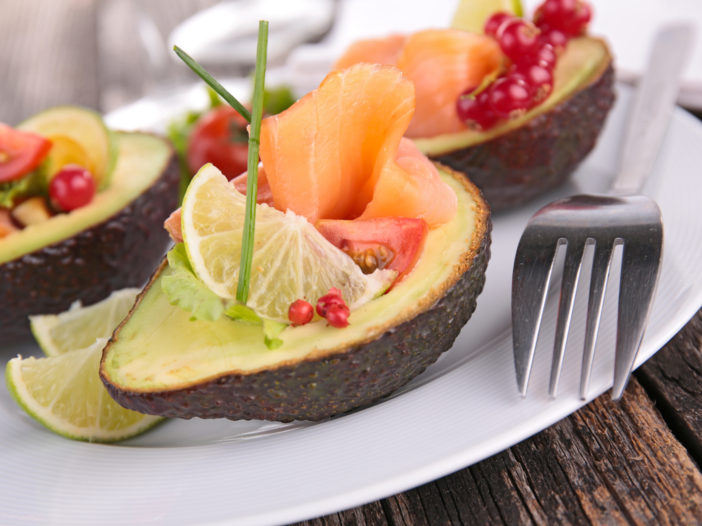
If, like me, you were a child and teenager in the 70s and 80S, you have probably grown up thinking that all fat is bad for you.
And fat makes you fat, right?
Why else would you call a macronutrient by this name if it doesn’t?
It certainly seems logical.
And you may still be on a low-fat diet thinking that this is the only way to lose weight.
The reality is that this is sooo wrong! Most low- fat processed foods and fat free foods contain sugar or artificial flavourings to replace the fat. And this in itself is more harmful.
Fat has so many functions. It is a critical and essential part of your daily diet for good health.
Research into fat continues and what we know today is very different from what we were being told 20 or 30 years ago.
But, of course, some fats that are better for you than others.
Let me debunk the myths and help you to understand the role of fat in your diet.
The topic of fat can still be confusing today. I will guide you through the good, the bad and the ugly. In this way, you can choose more wisely and know what you should include in your diet and what to avoid.
Once I have clarified the different types of fat, I will show you why the good stuff is just so dam important to peri menopausal and menopausal women who are going through such a great hormonal shift in the lives.
Teaser alert! Our hormones are made of fat!
So, you can imagine how bad menopausal symptoms can be if we don’t eat the right foods to be able to produce them!
So first of all, let me decipher the good from the bad for you as not all fats are created equal.
Trans fats – the ugly
Trans fats are unhealthy. They contain partially hydrogenated fats. This means that they have been chemically altered. These are found in margarine, fried foods, cakes, and lots of processed snack type food like crisps, biscuits, ice cream, pies, salad dressings and ready meals, They lower the “good” cholesterol and raise the “bad” cholesterol. They are linked to inflammation and increase the risk of heart disease and type 2 diabetes.
The “trans fat” problem is not as widespread as it used to be. But it is still a good idea to check the label. And remember that it is common in fast food takeaways which do not have to list the ingredients.
Saturated fats – the bad? Yes or no??
High fat meats and dairy products such as butter contain saturated fats. In the past, these were linked to high cholesterol and an increase risk of heart disease. However, recent research shows that this is not the case: An increased risk of heart disease is actually more likely to be associated with a diet that is high in sugar and refined carbohydrates.
Saturated fats are not actually “essential” for our health, but a little now and then is absolutely fine.
The good – Unsaturated fats
Unsaturated fats come in two forms – monounsaturated fats and polyunsaturated fats.
Examples of monounsaturated fats include nuts, olive oil, almond butter and avocados.
Polyunsaturated fats are found in foods like flaxseeds, sunflower oil, walnuts, salmon and other oily fish.
There are two types of polyunsaturated fats – omega-3 and omega-6.
Omega-6 is found in seeds, nuts and oils such as sunflower oil.
Omega-3 is found in plant foods such as flax seeds and oily fish such as salmon and mackerel.
Polyunsaturated fats are also called “essential fats” as you cannot make them in your body. You have to get them from the food you eat. And these fats are considered to be the healthiest.
So far so good, but this is where things get a bit tricky!
Although both of these fats are essential, it is important to get the omega 6:3 ratio in balance. Unfortunately, our modern diets favour omega 6 which is abundant in vegetable oils, animal products and processed foods. And when this pathway is favoured, it can be pro -inflammatory in the body. It is therefore important to include oily fish in your diet 3 times a week. And if this is not possible, consider supplementation with a good quality fish oil.
Why is fat essential for peri and menopausal women?
- It fuels your body and gives you energy.
- 60% of our brain is fat, so it goes without saying that good fats are essential for it to function. A diet that is low in fat can contribute to menopause symptoms such as brain fog and forgetfulness.
- For your hormone production. As you transition through the menopause, your sex hormones start to fluctuate and eventually decline. During this transition phase, it is really important to support your hormonal health as much as you can. And good sources of healthy fats are one way to do this.
- One of the more common menopausal symptoms are achy joints. Essential fats are considered to be anti-inflammatory and a good source of lubrication.
- Fat helps you to control your weight. They are very filling so help to decrease your appetite. They also help to control sugar cravings by balancing your blood sugars.
- They help to keep our skin soft and supple and keep those wrinkles at bay.
- Fat helps you to absorb certain vitamins that are fat soluble (A,D,E,K). And this is a requirement for our hormones to work properly.
So the bottom line is this. Essential fats can make a difference between a smooth transition through the menopause and one that is perhaps a little more bumpy.
If you would like to learn more about what to eat for a happy and healthy menopause, why not download my free starter kit here:
